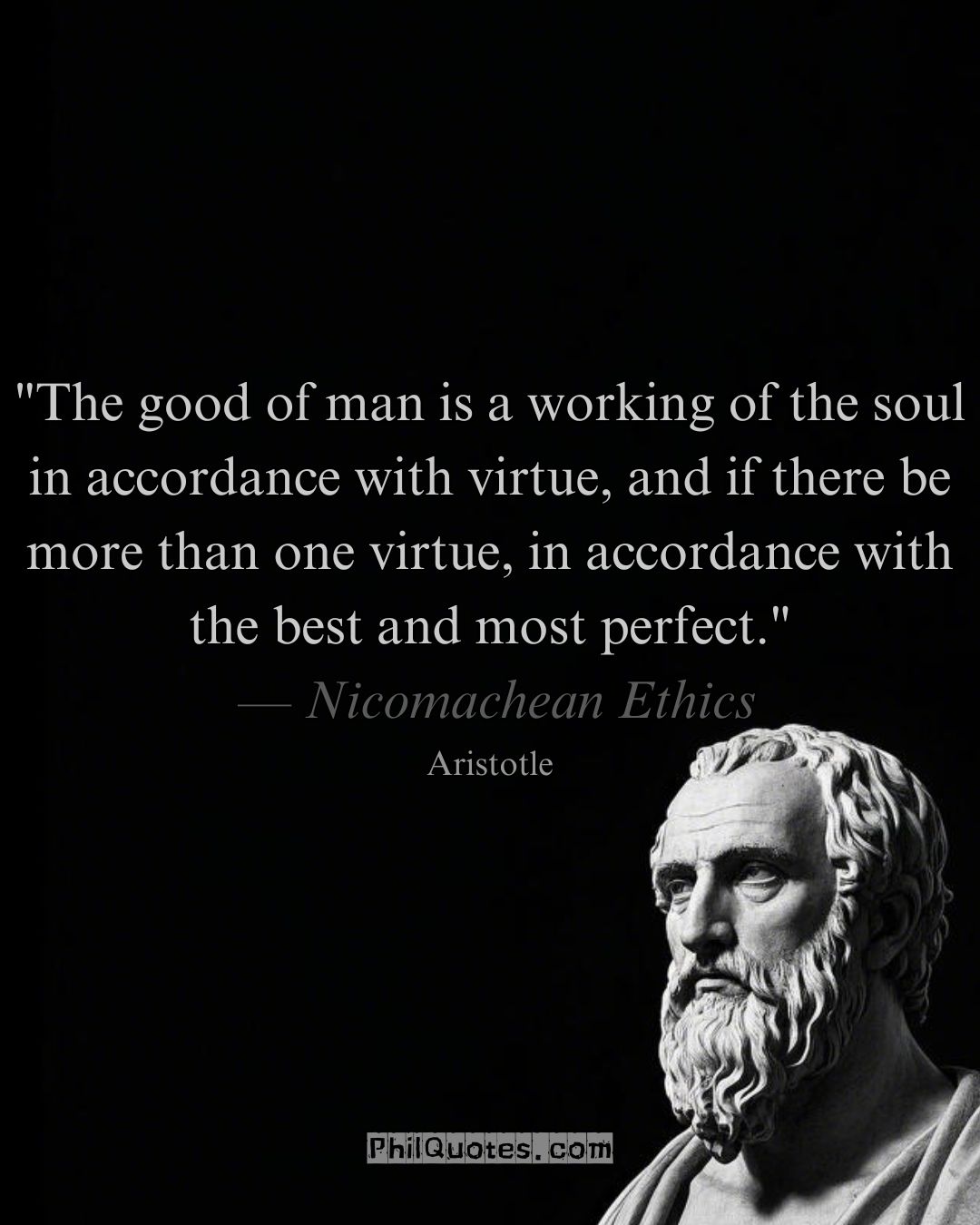
“The good of man is a working of the soul in accordance with virtue, and if there be more than one virtue, in accordance with the best and most perfect.”
— Aristotle, Nicomachean Ethics, Book I, Chapter 7
Simple Explanation:
Aristotle elevates happiness (eudaimonia) as the supreme human good — not passive contentment, but an active alignment of mind, character, and action. When multiple virtues exist (courage, wisdom, generosity), true excellence demands harmonizing the highest virtues like a conductor uniting an orchestra’s instruments into a masterpiece.
Real-World Connection:
① Musician’s Journey →
You practice violin 4 hours daily (skill virtue) → master complex concertos (technical excellence) → collaborate with diverse artists (social virtue) → create transcendent performances (soul’s perfect work).
② Doctor’s Ethical Dilemma →
A surgeon excels in precision (professional virtue) → prioritizes patient autonomy over surgical glory (moral virtue) → achieves holistic medical good by balancing expertise with humility.
③ The Golden Integration →
Aristotle’s “most perfect virtue” is practical wisdom (phronesis) — the ability to weave courage without recklessness, ambition without greed, and justice without rigidity into a life tapestry of flourishing.